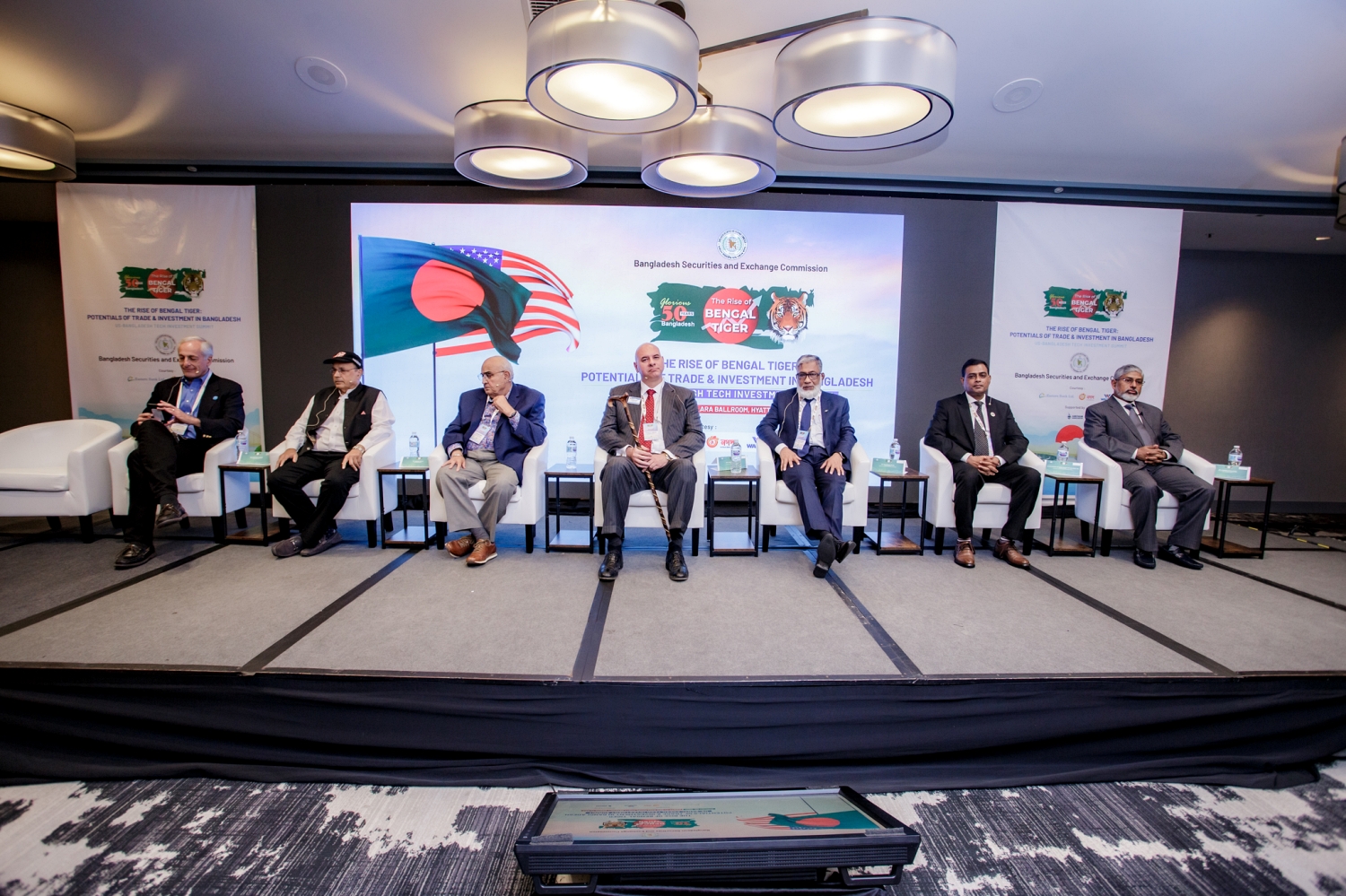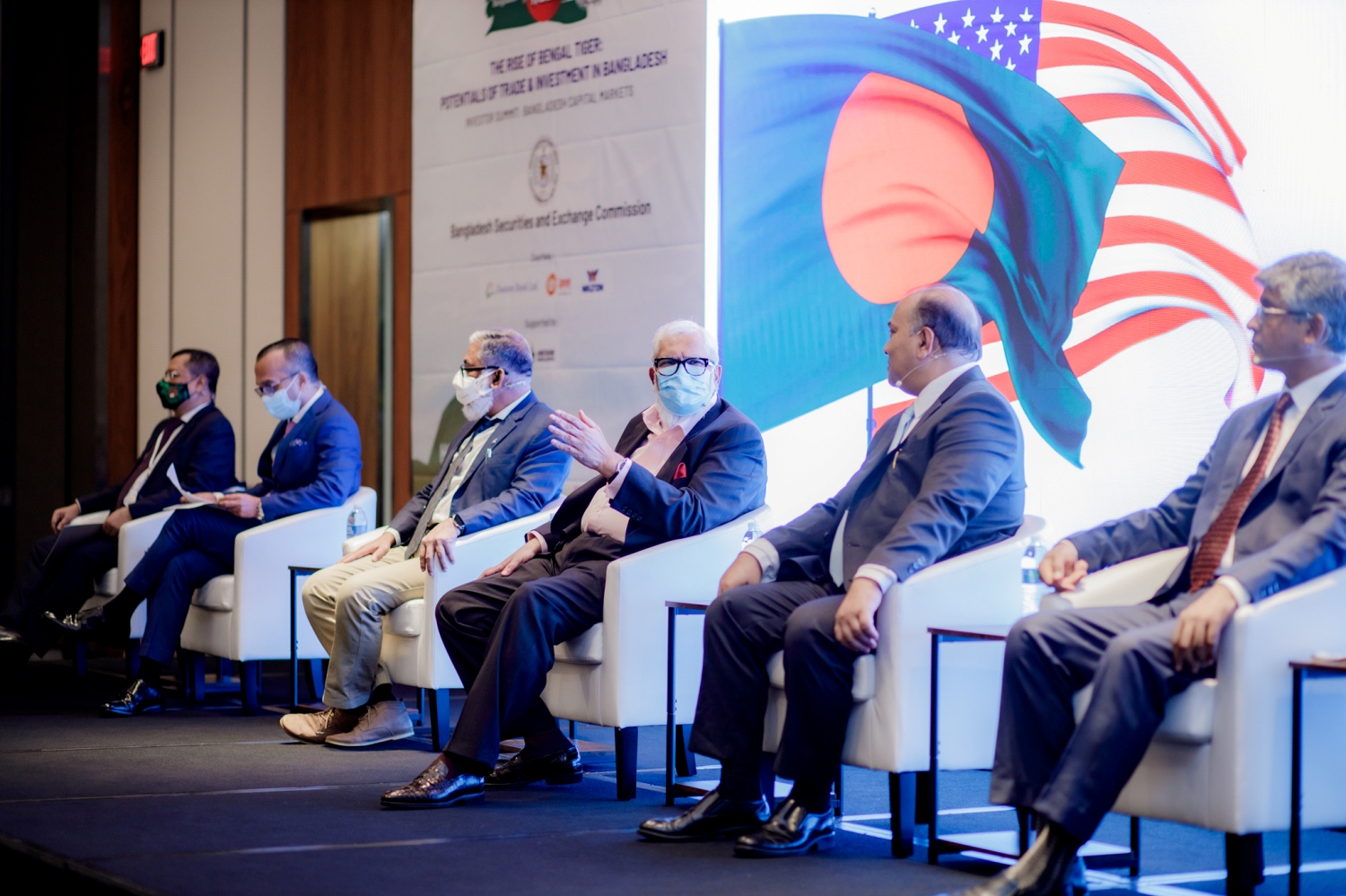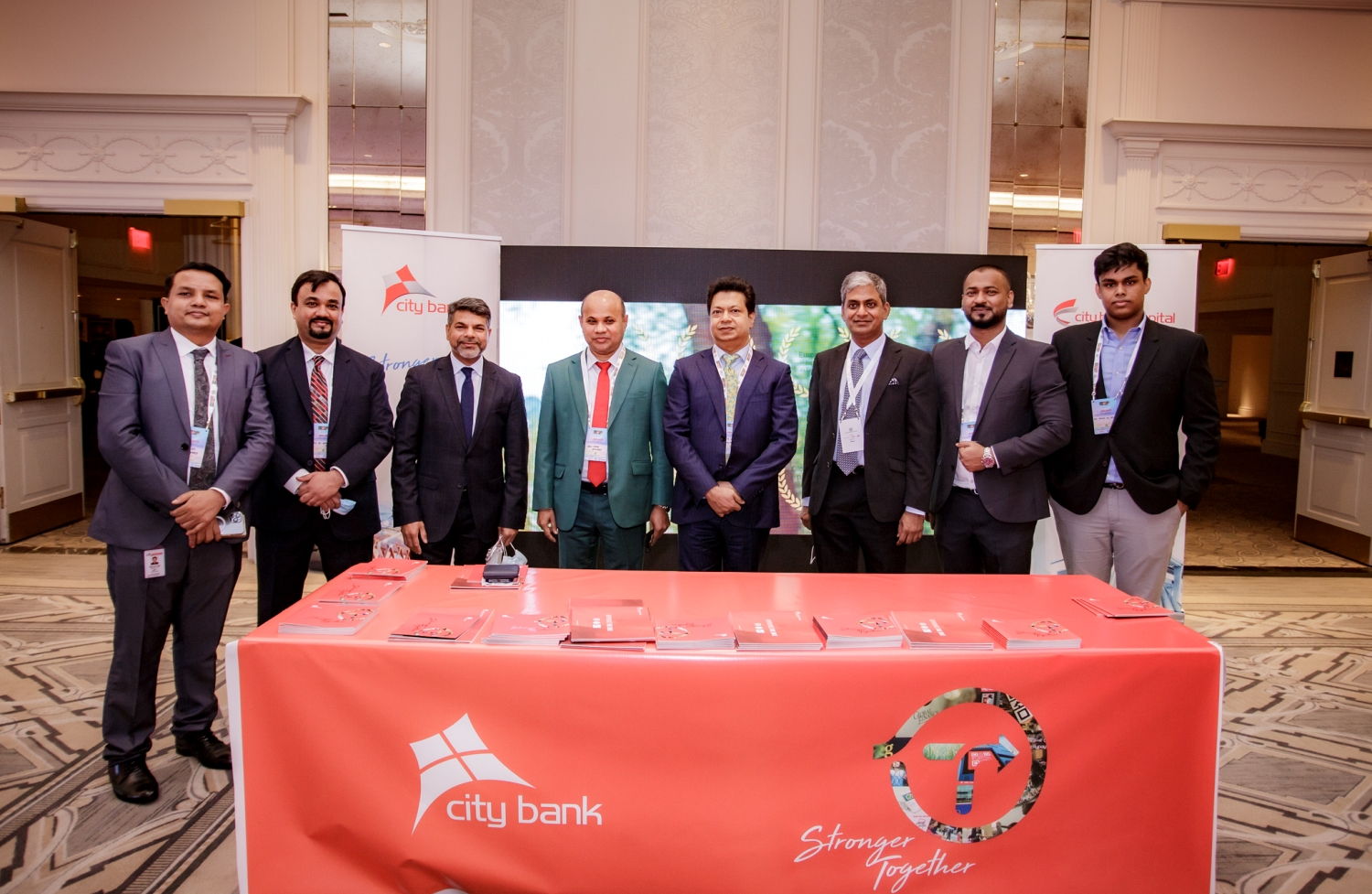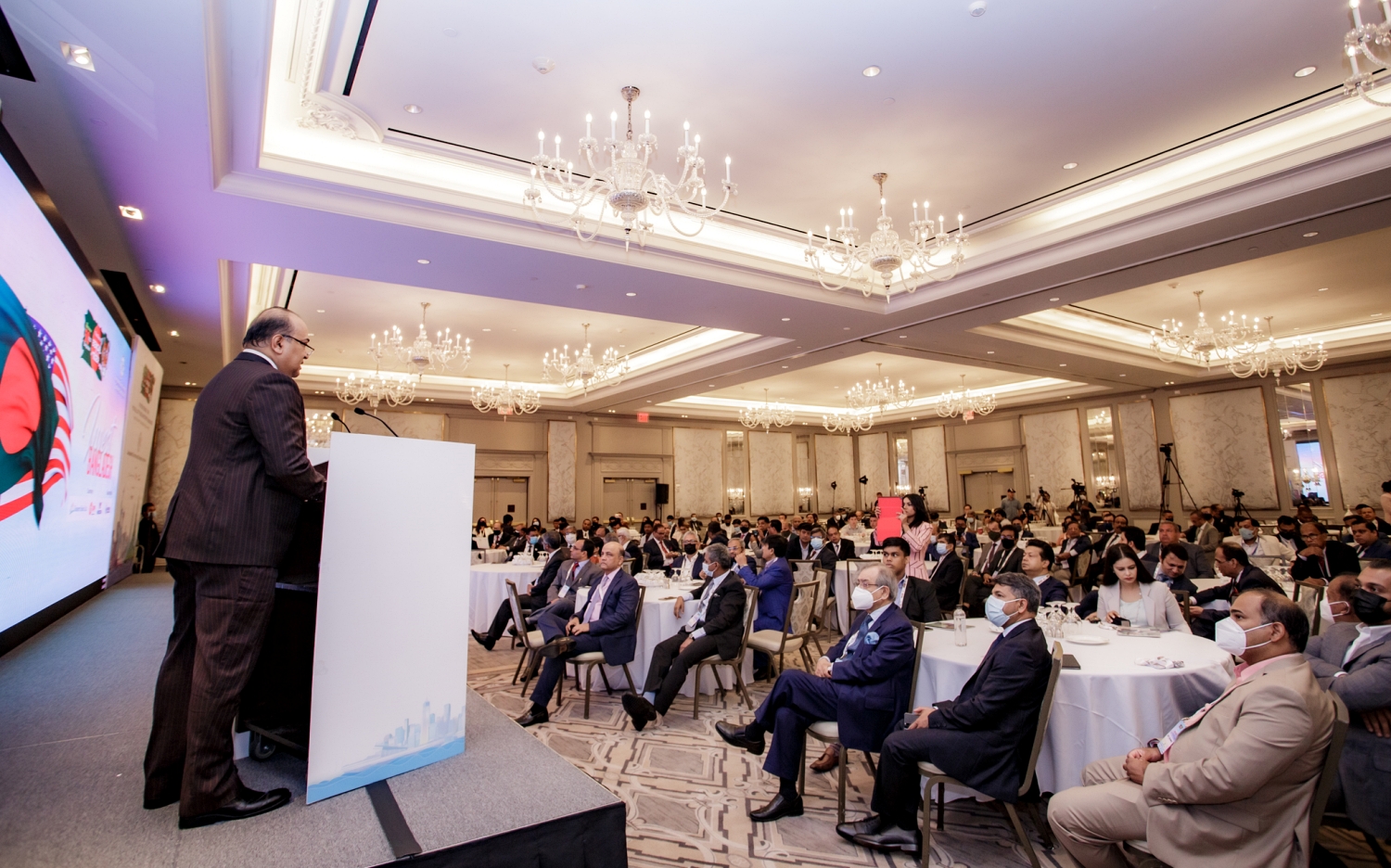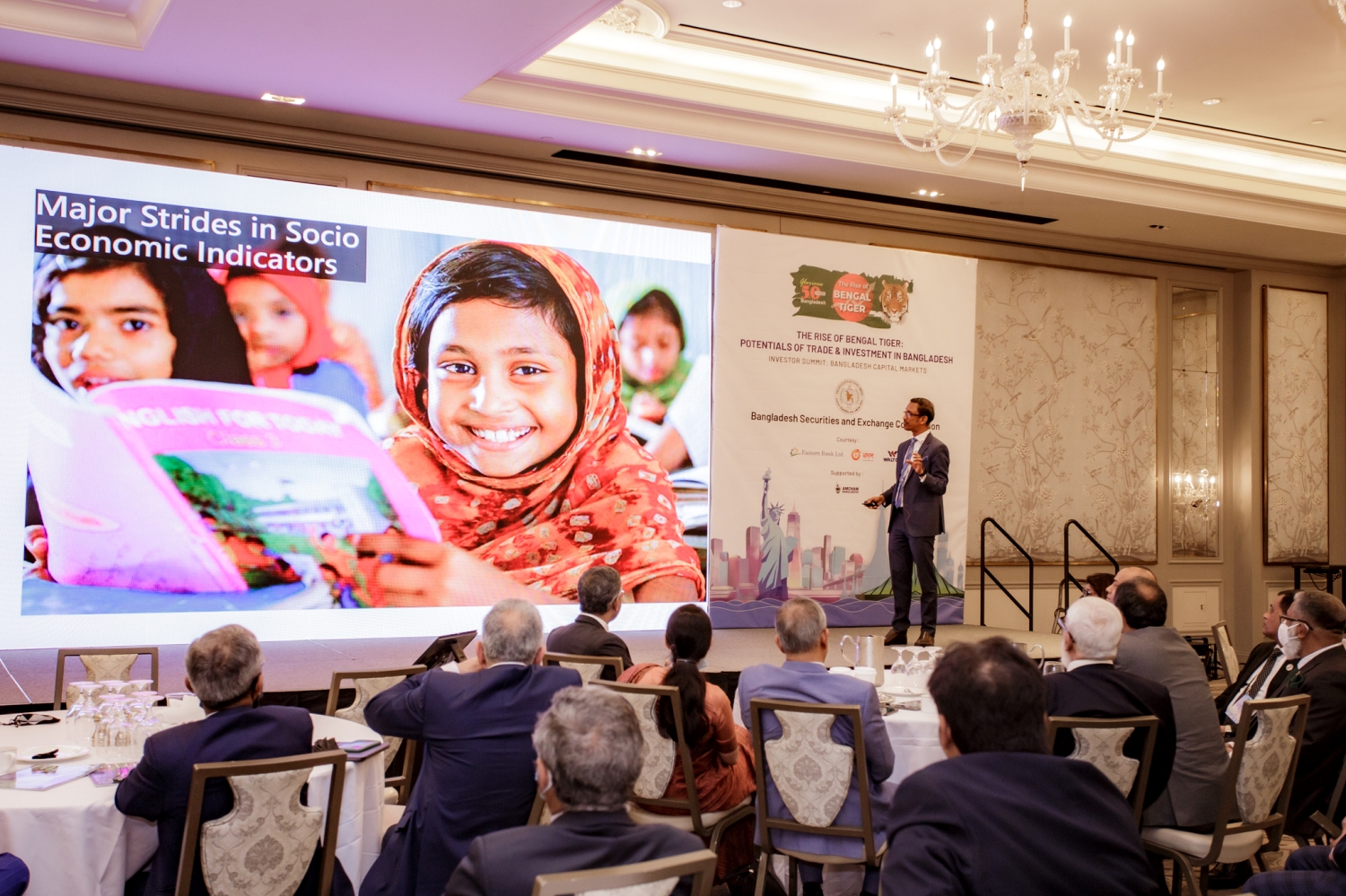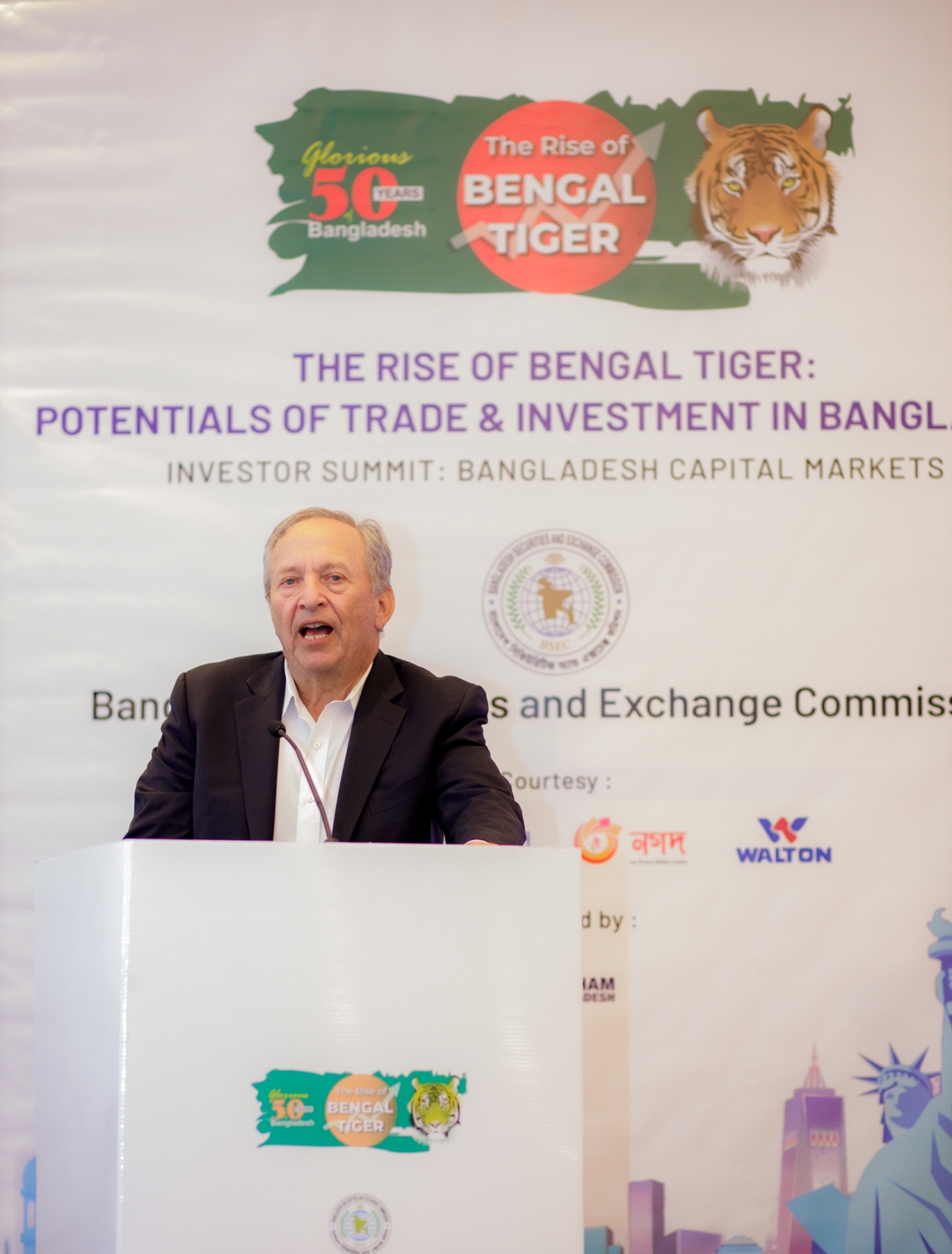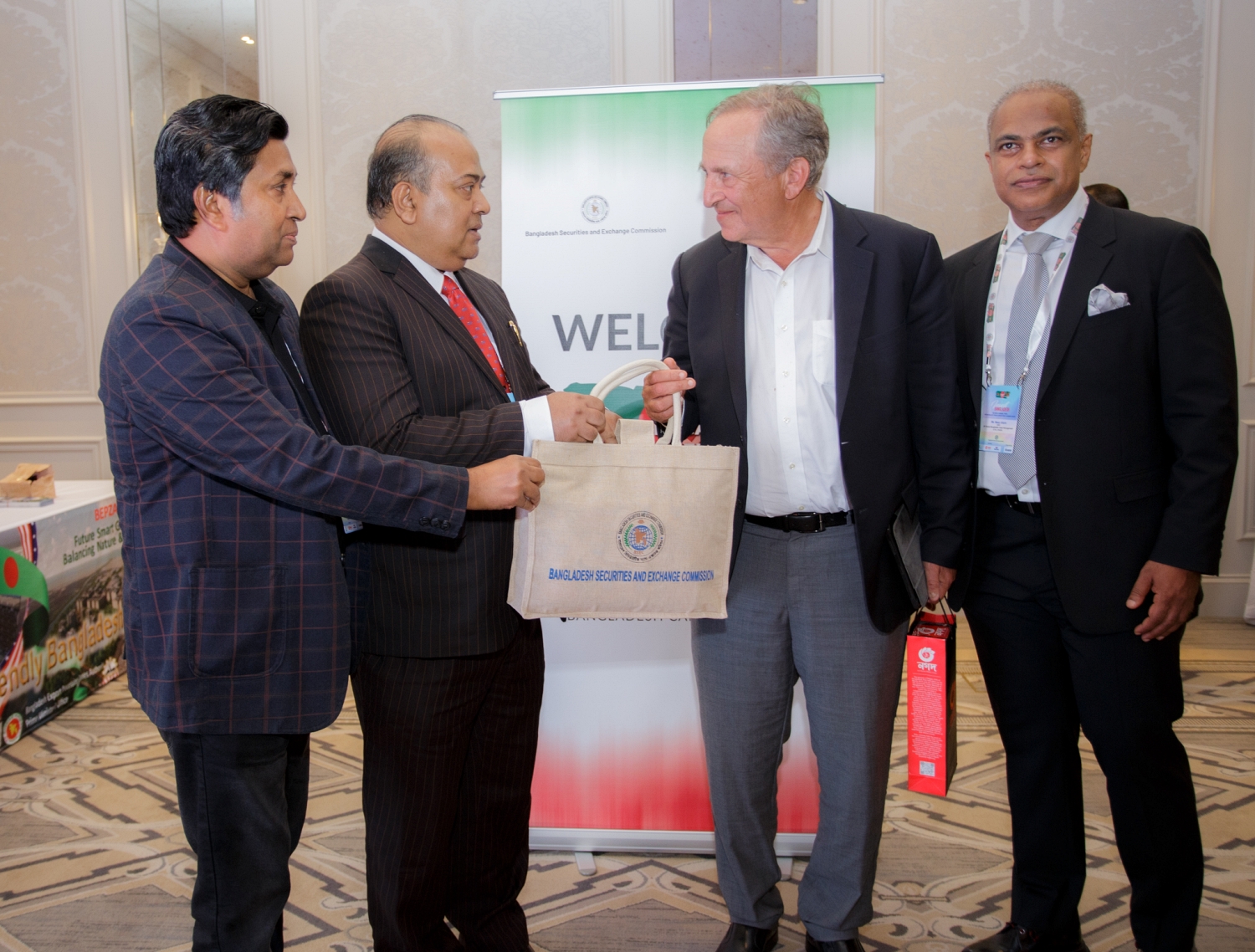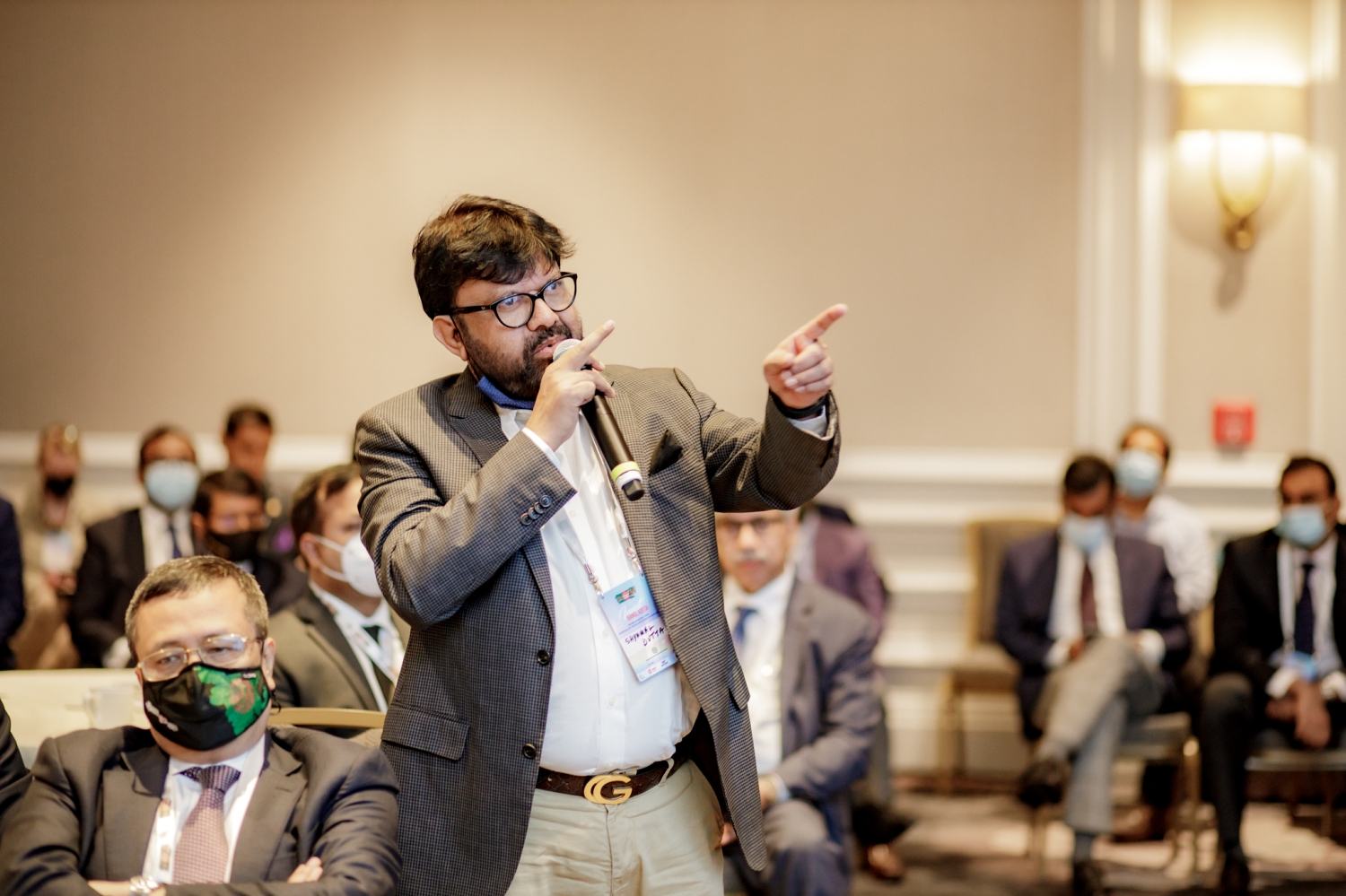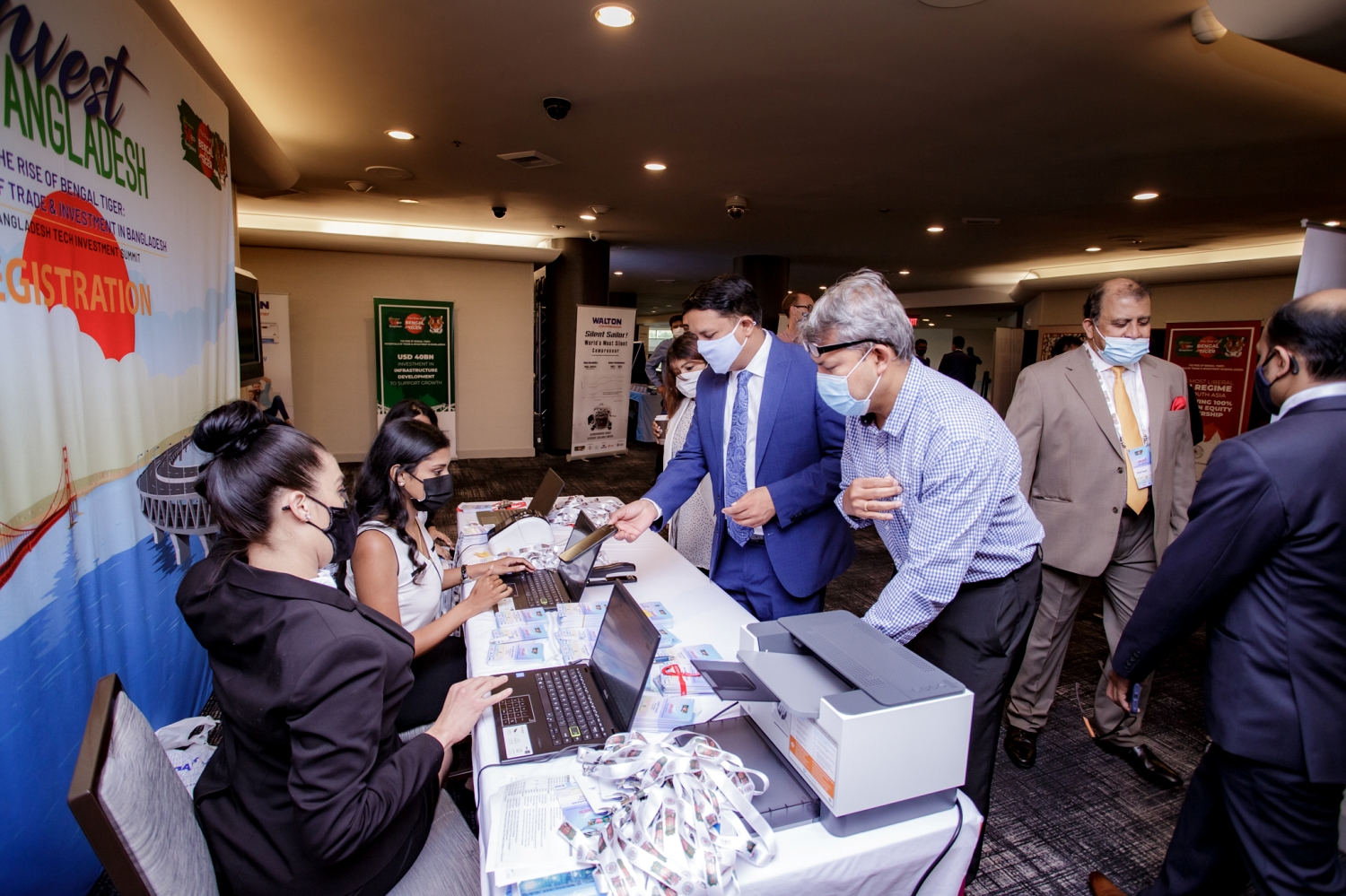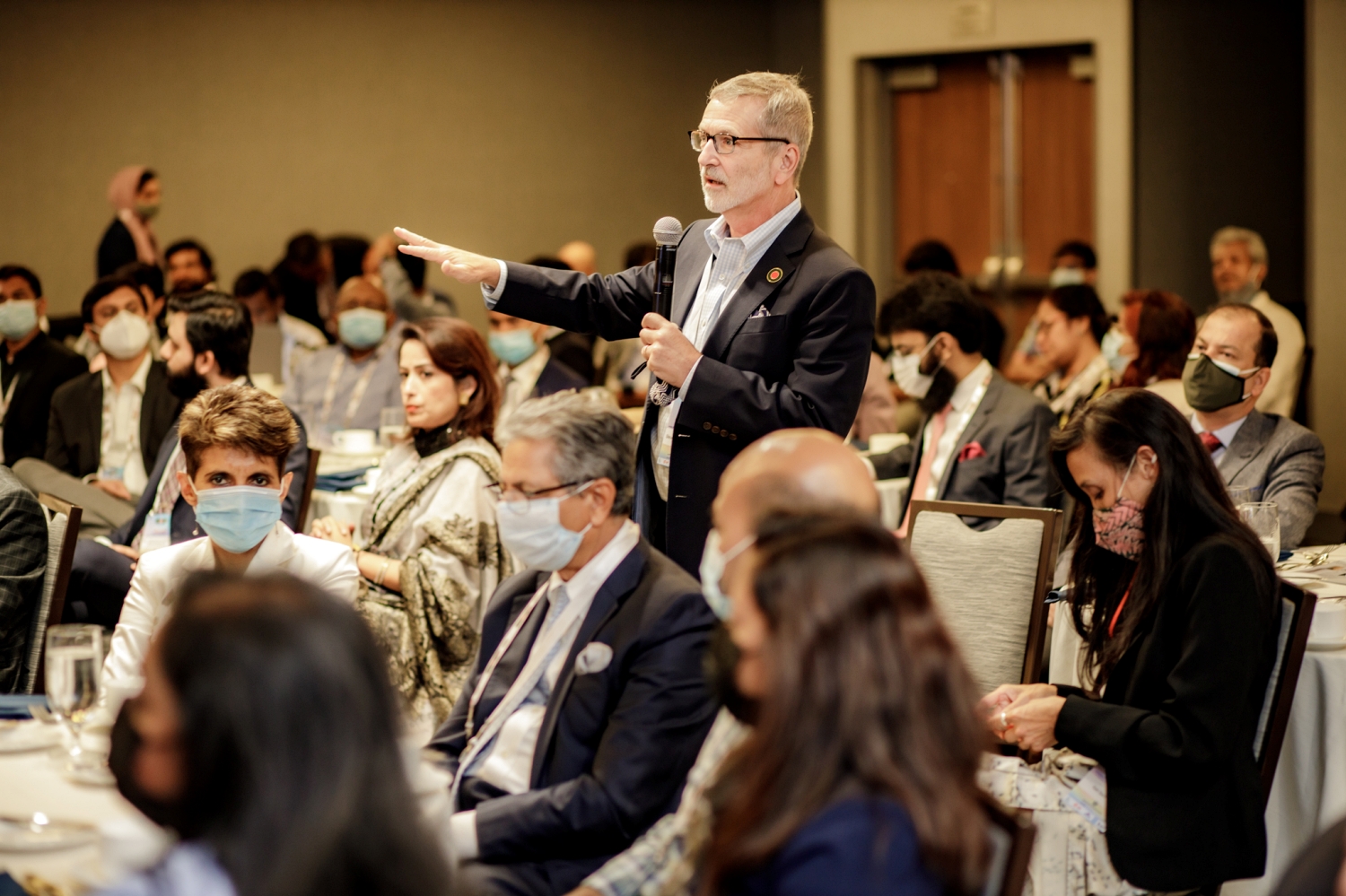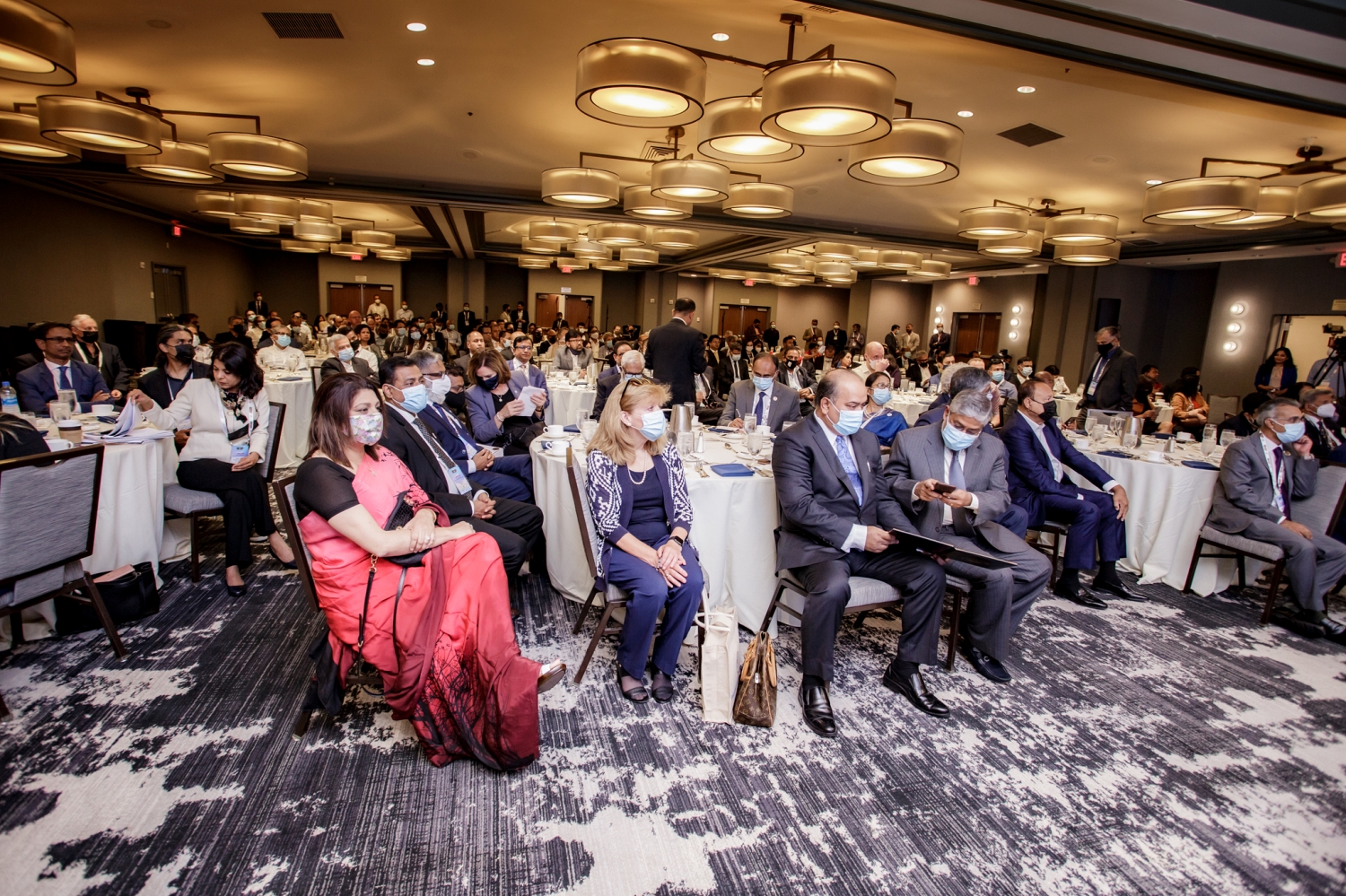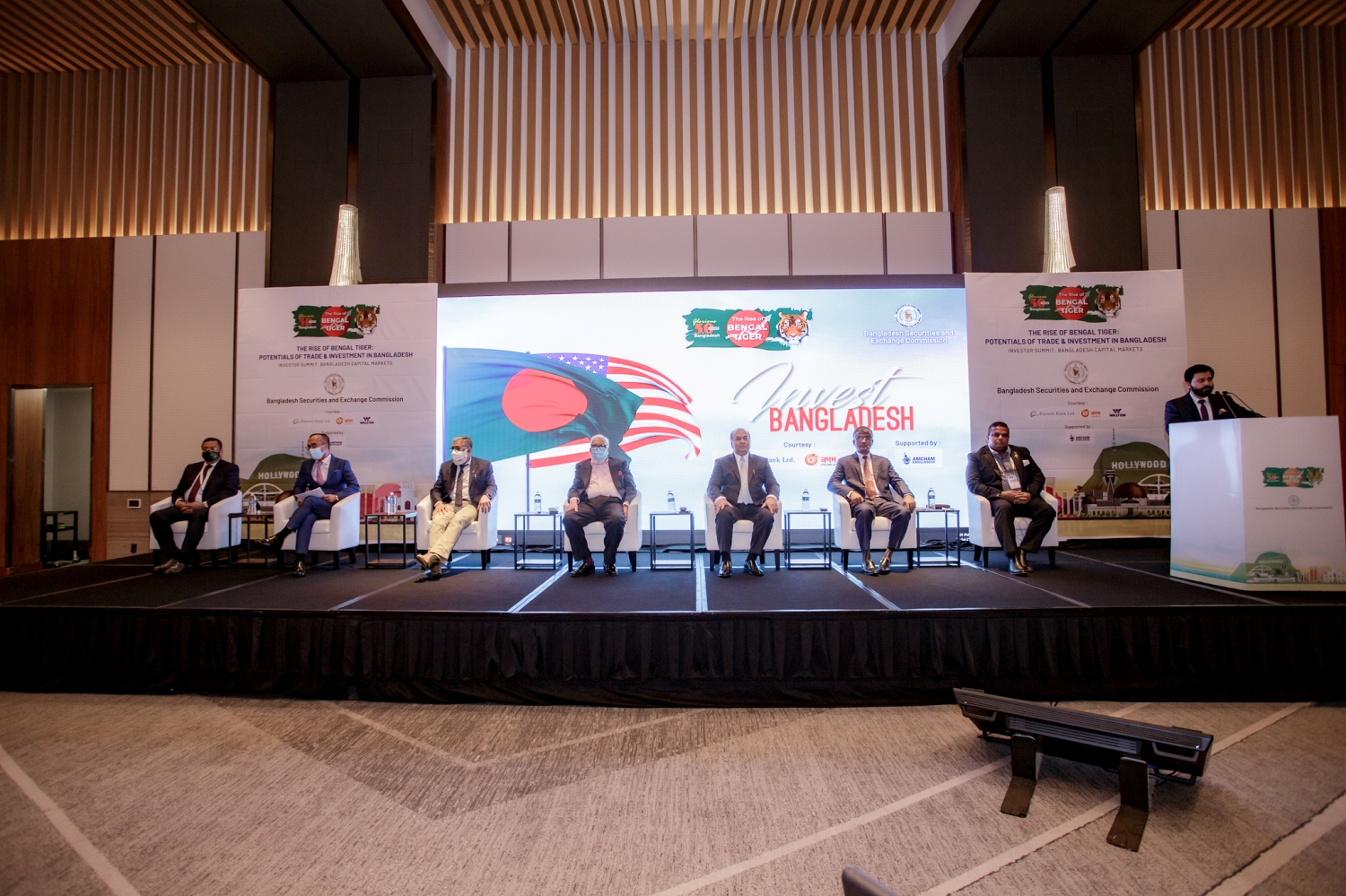Bangladesh: A New Frontier of Investment
Considered as the next Asian Tiger, Bangladesh is one of the fastest-growing economies in the world. The growth rate of the economy averaging above 6.5% over a decade has transformed the country into a destination of investment opportunities. To showcase the true potential of Bangladesh as an attractive place for foreign investment roadshow “The Rise of Bengal Tiger: Potential of Trade and Investment in Bangladesh” was organized by the Bangladesh Security Exchange Commission (BSEC) between July 26 and August 2 this year. The Contributing Editor of COLORS Business Magazine Rehnuma Karim Ph.D. reports from New York.
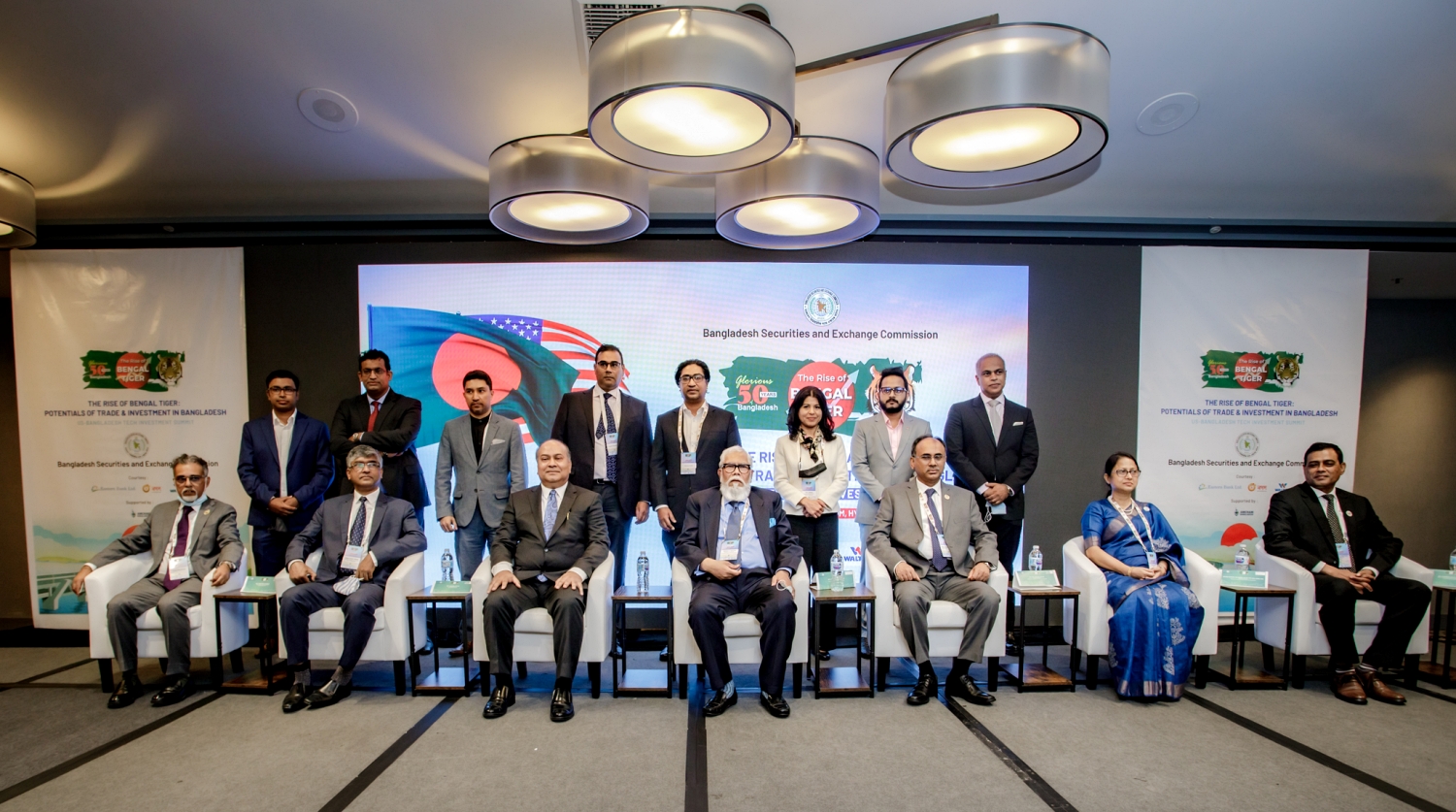
The invited keynote speaker at the recently held BSEC Road Show in New York, Lawrence H. Summers, the 71st Secretary of Treasury for President Clinton and the Director of the National Economic Council for President Obama appropriately, pointed out that the potential of Bangladesh as a place for growing investment is still undermined and untapped in the USA. The data on the state of the US and Bangladesh trade indicated that US Trade volume in 2019 with Bangladesh was only $9 billion while for Vietnam it was 81.3 billion, India $146.1 Billion, Malaysia $59.2 billion, and Singapore $91.6 billion. And this is why events such as the Road Show titled: “Rise of the Bengal Tiger-Potential for Trade and Investment” definitely can address the misconception and gaps letting the world have a glimpse of what Bangladesh has to offer as the new frontier of investment.
The first roadshow was held successfully in Dubai, UAE from February 9 to 12, 2021 creating overwhelming responses both from the NRBs and foreign institutional and individual investors. The second series of events followed and also was organized by the Bangladesh Securities and Exchange Commission that took place in 4 major cities of the USA, starting from New York City followed by Washington D.C, Los Angeles, and concluded in Silicon Valley, Santa Clara. Two different sessions were arranged for NRBs and Foreign Investors in New York City. In New York, both Investors and business leaders of both nonresident Bangladeshi and foreign institutional and individual investors participated. A senior and high-powered team of BSEC led by its Chairman Professor Shibli Rubayat-Ul-Islam and representatives from the concerned ministries and regulatory authorities, dignitaries including the Private Industry and Investment Adviser to Prime Minister Salman F Rahman; Senior Secretary of Finance Division participated at the different sessions of the Roadshow across the USA. Abdur Rouf Talukder; Secretary of the Ministry of Commerce; Tapan Kanti Ghosh, Secretary of Economic; Resources Division-Ms. Fatima Yasmin; Executive Chairman of BIDA, Md. Sirazul Islam and Executive Chairman of BEPZA Major General Md. Nazrul Islam are also among the core group of speakers. The events were also attended by many private sector leaders, NRBs, foreign Investors, and Media.
The first of its kind Roadshow focused on Investment and Trade with two major sessions directed to the NRBs and the Foreign Investors took place at the Intercontinental New York Barclay hotel in Manhattan, New York on July 26, 2021.
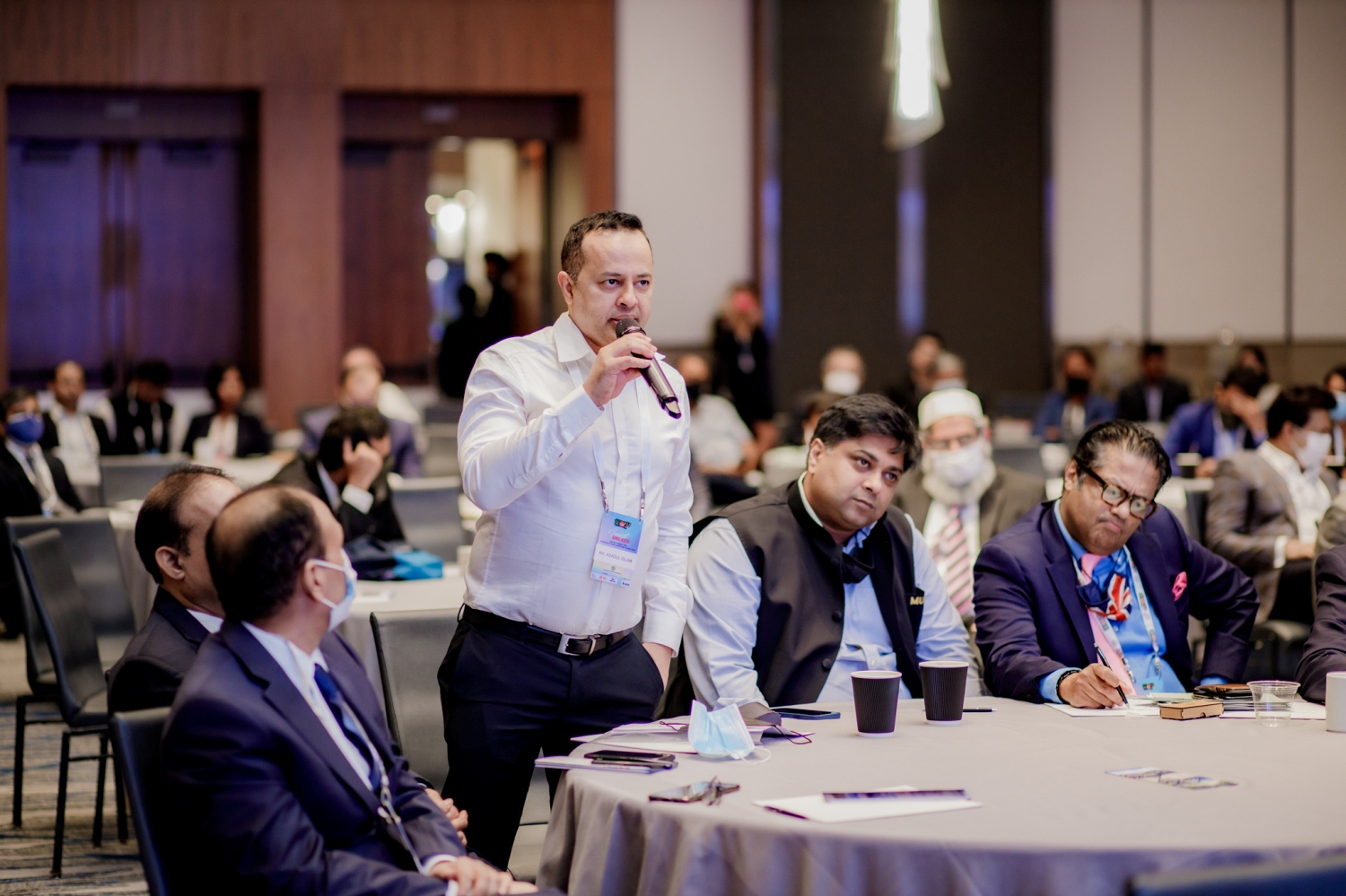
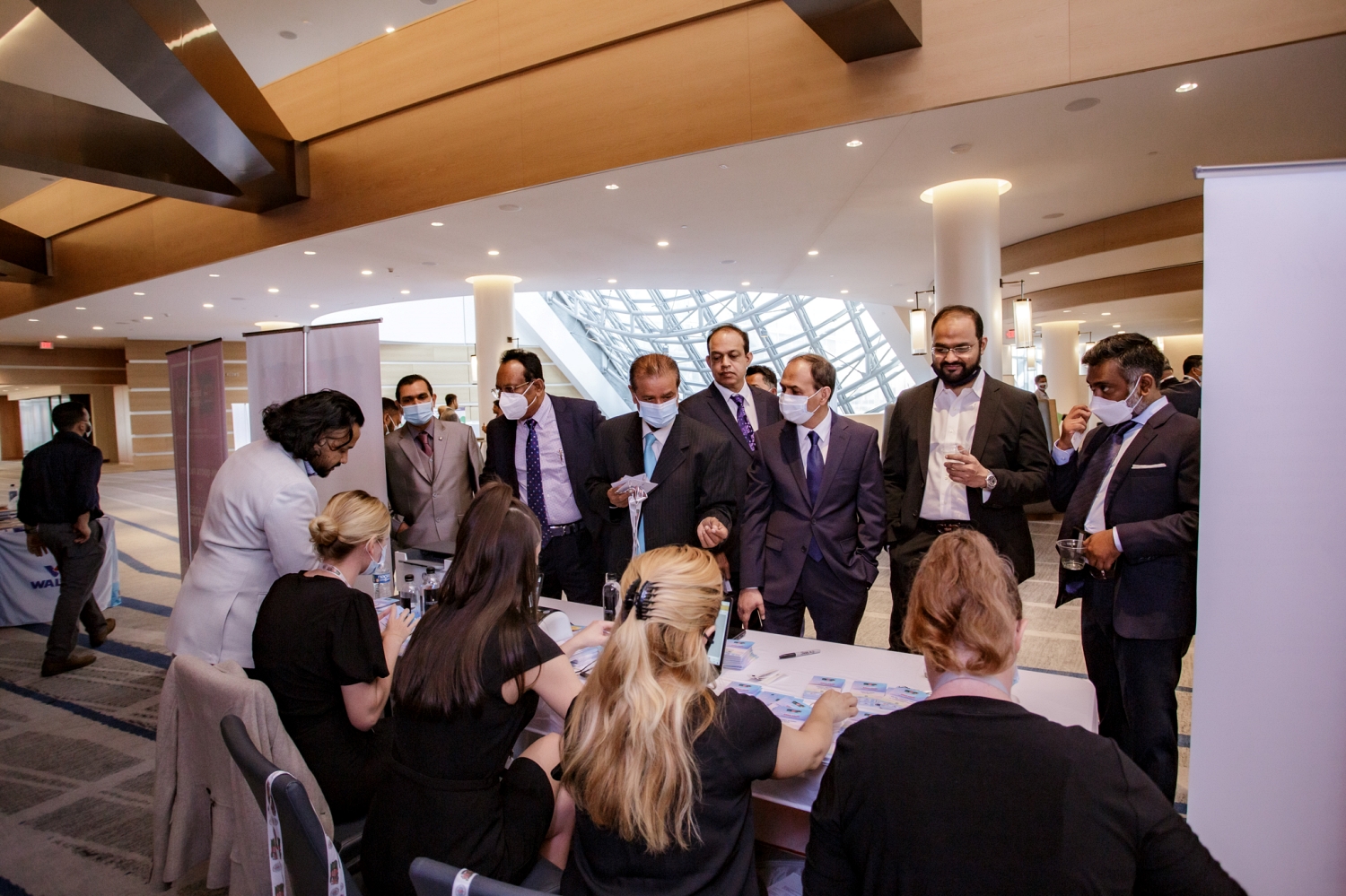
Attracting FDI
Foreign Direct Investment (FDI) plays a significant role in contributing to the economic growth of a country like Bangladesh, giving the needed push to the next stage of development. Bangladesh has set its goal to become an upper-middle-income country by 2030. But to achieve this status, it has to keep the continued momentum to build the desired conducive investment conditions to attract foreign investors and NRBs who can stimulate the national economy. According to the Global Investment Competitiveness report, 12 pillars including institution, infrastructure, ICT adoption, macroeconomic stability, health, skills, product market, labor market, financial system, market size, dynamism in business, and innovation capability are needed to create an attractive investment environment. According to the World Economic Forum, Bangladesh scored 52.12 points out of 100 on the 2019 Global Competitiveness Report and has room for growth to climb up the ranking.
In the fiscal year 2018-2019, despite the not-so-high ranking; Bangladesh’s GDP grew by 8.2%, which was ranked among the highest in the Asia Pacific region. Confidence of investors is also growing mainly because of the proven policies, regulatory reform, infrastructural and ICT development, and for the decade of stable political conditions. FDIs have been flowing mostly into RMG sectors, food processing, and Banking, but more sectors can be explored such as health and tourism.
The following chart shows the forecasted economic indicators for Bangladesh, which surely is a positive sign for growth. Foreign investors are attracted to invest in a host country when the country’s general state shows the following indicators with a promising outlook. The indicators are; legal, economic, and political stability; increased employment and economic growth, development of backward areas; increase in exports; exchange rate stability; growth in the energy/power sectors; stimulation of economic development; development of human capital; improved responsiveness to the needs of investors and improved capital flow. The roadshow aimed to convey the updated information on some of these major indicators and undertook a coordinated effort between the government and the private sectors not only to promote Bangladesh but also to identify investors’ priorities for investing in Bangladesh.
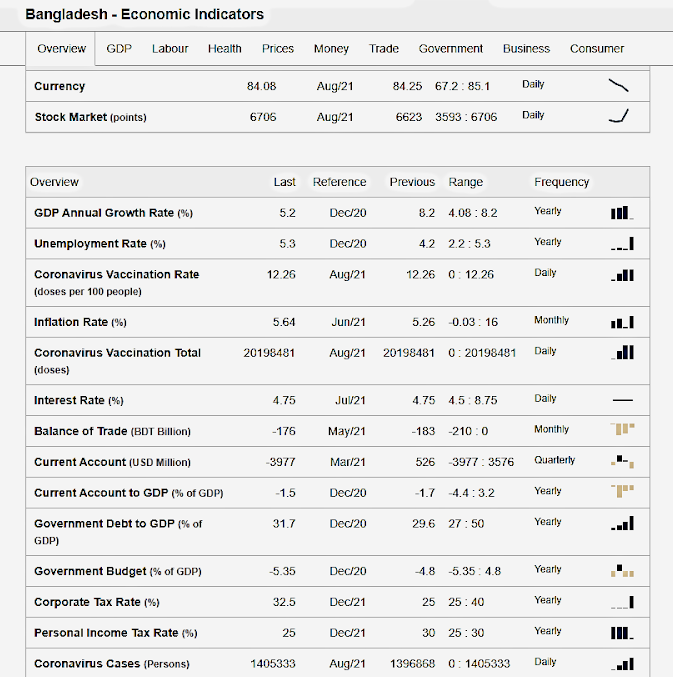
MNCs bringing Foreign Direct Investment are more interested to invest in developing countries when they fully understand their opportunities and risks. The real images of Bangladesh’s success stories showing prospects for more and new types of investments have to be told to grab the attention of the right investors who are ready to explore and grow with the country. With a 6% and above annual growth in the GDP and per capita national income reaching US$ 2,227, the country is primed towards achieving the middle-income country status by 2024 and aiming to become a developed country by 2041. Under the leadership of Prime Minister Sheikh Hasina, the country showed resilience even during the pandemic that placed Bangladesh among the 23rd IMF member countries that were forecasted to have positive growth despite COVID-19. To promote promising opportunities for investors around the world as an emerging key hub for trade and investment, BSEC partnering with BIDA took this initiative to put the spotlight on what Bangladesh has to offer.
Bangladesh as an enticing destination for FDI
The World Bank conducted an investor survey on 750 Multinational companies to understand the factors that attract them towards investing in a developing country. The following illustration showed that political stability and security along with a stable legal and regulatory environment are the leading characteristics considered by executives of MNCs to invest and these far outweighed issues such as low tax and labor cost.
Eminent Economist Lawrence H. Summers, Professor of Charles W. Eliot University and former Chief Economist of the World Bank in his keynote speech appreciated the current transparent framework of the Bangladesh financial market and encouraged investors to explore the possibilities of investing in Bangladesh.
During the last 12 years since 2009-Bangladesh continued to show a stable political environment. Salman F Rahman mentioned how the term “Hartal” is not known to the new generation of foreign investors nowadays which surely is a positive sign. The government is also taking conscious approaches and making plans to address a transparent and stable legal and regulatory environment for an investment-friendly environment. Digitization of many such services therefore no doubt has been a key contributing factor of growth. With the accelerated effort of digitalization in Bangladesh and infrastructure development, remarkable progress has been made in the ICT sector that increased confidence to invest in Bangladesh by foreign investors and venture capitalists. Leading Financial Institutions of the world also said the following, observing Bangladesh’s remarkable growth.
“Fastest growing economy in South Asia” The World Bank
“One of the top four fastest-growing digital economies of the world”. Global Connectivity Index
“The 23rd largest economy of the world” PriceWaterhouseCoopers
In the path towards becoming a developed country by 2041, Bangladesh despite the pandemic performed as one of the best markets in the world in 2020. $40 billion has been invested in infrastructure to support growth. One of the strengths Bangladesh has to offer is the demographic dividend of 55 million youth population and 70 million workforces. At the inauguration event in New York, the prominent speakers from the core delegation delivered their pitch presenting Bangladesh’s strength and also addressed the misconceptions.
The takeaways
Each speaker represented their respective organizations at the BSEC roadshow and elaborately showcased the reasons for Bangladesh being in the trajectory to achieve a high growth rate and emphasized the investment potential and opportunities, available facilities, products, and services for both NRBs and foreign investors. They made the case on why FDIs jointly or 100% fully foreign-owned can enjoy global standards benefits through their investments in Bangladesh. The following section captures some of the major key takeaways.

Investment Opportunities in the Capital Market
Professor Rubaiyat-Ul-Islam, Chairman of BSEC, eloquently placed the facts and figures on why Bangladesh has become a fertile ground for trade and investment. He mentioned the benefits investors can enjoy having no tax on profit till 2021 and 20% to 100% tax reduction for 10 years of operation in High tech parks. Also, there is an 80% VAT exemption on utility investing in High tech parks. No foreign equity limitation on share-holding and 50% discount on foreign employees for 3 years. The investors can also enjoy 100% repatriation facilities for profit and capital, 10% cashback on export-oriented revenue, and duty-free import provision of fixed capital and assets. Bonded warehouse facilities are also provided in a few sectors.
He also said that Bangladesh has a robust capital market that guarantees a high return on capital.
DSE showed double-digit growth of 24.4 % amidst the pandemic, growth in remittance flow and
a surplus current account that indicates the sign of resiliency. In Santa Clara, Professor Rubaiyat-Ul-Islam talked about the vibrant growing Startup ecosystem that is supported by Bangladesh Government and the private sector. The accelerated digitization in Bangladesh allowed the ICT sector to grow manifold which is also an excellent indicator of growth. ICT export has crossed the billion dollars. The median age of youth in Bangladesh is 27 who have increased digital awareness and tech adaptability. Every 3 out of 5 people have an MFS account. The number of mobile subscribers in 2021 is at 170 million and internet users at 112 million, which has become a potential market with a growing appetite for consumer spending. Global standard policies have been activated to promote the ICT sector and the startups’ industry. Customized training on frontier technology has become mandatory from primary education which will build a highly-skilled workforce. There is also a 100% tax discount for 10 years for investors who want to invest in high-tech parks in Bangladesh.
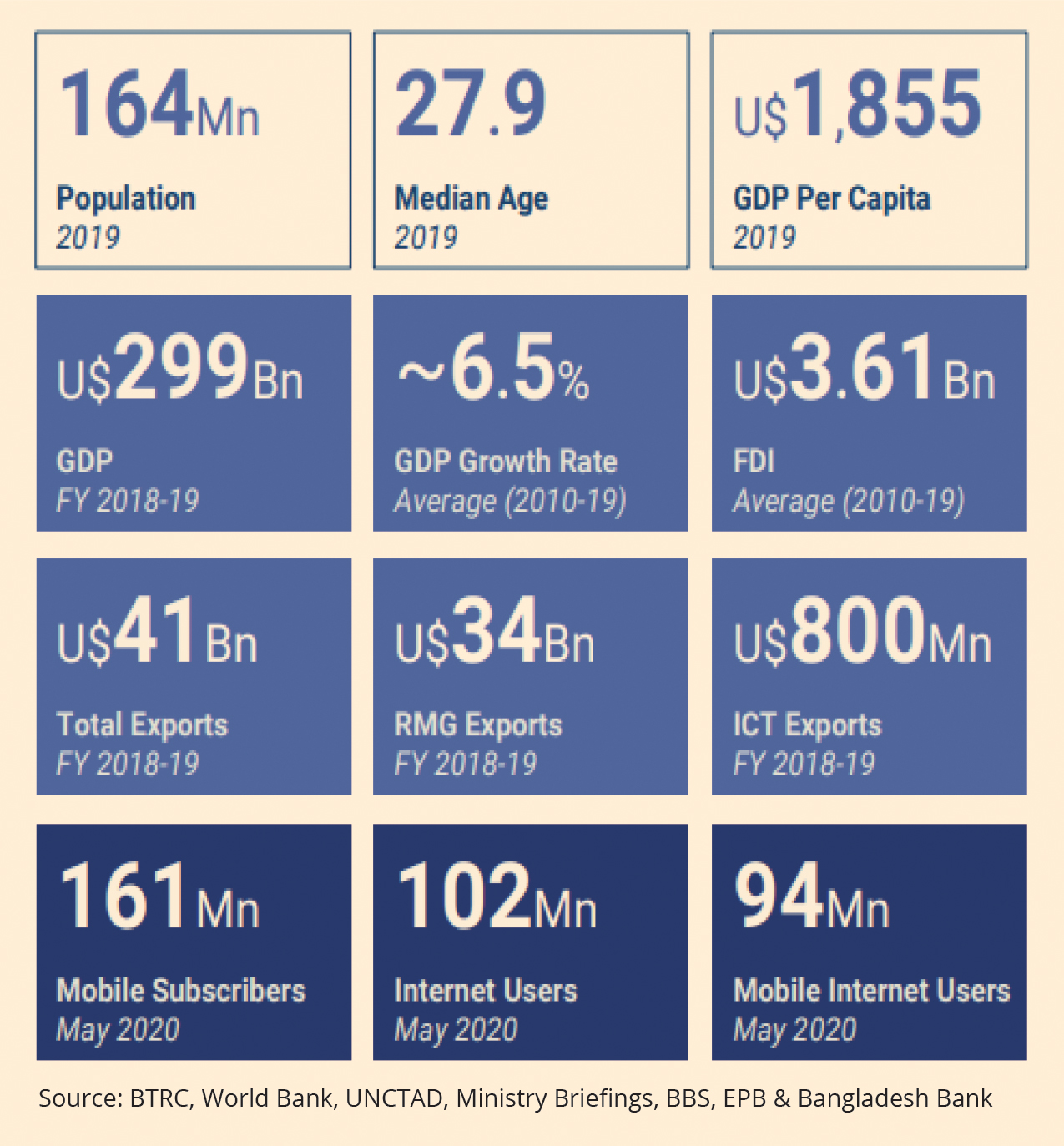
Another significant indicator to attract foreign investors is the consistent GDP growth that has surpassed the GDP growth of Bangladesh’s neighboring countries. He also informed the NRBs on the NITA (Non-Resident Investors Taka Account) which is a facility that is provided to non-resident individuals/institutions including non-resident Bangladeshi nationals who are interested in trading Bangladeshi securities against foreign exchange remitted from abroad. The Chairman of BSEC concluded his talk quoting Rabindranath Tagore, “Everything comes to us and belongs to us if we create that capacity to receive it.” He invited potential investors to the untapped opportunities that Bangladesh has to offer to build a strong partnership. At the Stakeholders meeting in Washington D.C, he pointed out the importance of networking that can build bridges and added that “Bangladesh is no longer looking for aid but looking for partners. We have planned infrastructure development, successful educated business people who can be excellent business partners for you. And the population of Bangladesh is a blessing as it has created a large market size near France, Italy, and England. With the growing purchasing power of our people, Bangladesh is launching into a big market which presents attractive characteristics for investors to come in.”
Steps to attract FDI
The Executive Chairman of BEPZA, Major General Md. Nazrul Islam, SPP appreciated the long-term trade and investment partnership between Bangladesh and the USA. His speech was aimed to build awareness of the reformation that has been going on to accommodate the investors from abroad. BEPZA, the government body empowered and responsible for the creation, development, operation, and management of industrial zones like Export Processing Zones as well as promoting investment in Bangladesh has been playing an integral part in the economic growth of the country. He encouraged the investors by mentioning the establishment of the One-Stop Service (OSS) in 2018. The One-Stop Service (OSS) Center tag line is “With you all through the way” and was created to facilitate existing companies and prospective investors of EPZs to receive services, incentives, permission, NOCs, & Certificates from BEPZA or other service-providing organizations within the stipulated time from a single window. He added how EPZ contributed 1/5 of the total export and encouraged product diversity and a move from the single-sector dependence that was focused on RMG. At present EPZs have expanded production into 22 products under export categories. Reduce single sector dependence.
Stable Investment Climate
To advocate his case on bringing in sizable Foreign Direct Investment, Bangladesh Commerce Secretary, Tapan Kanti Ghosh described the role of export and import in Bangladesh’s growth journey. He was optimistic about Bangladesh climbing the ladders of development with rapid progress and stability in different sectors, maintaining a steady inflation rate of 5%. Ghosh did realistically acknowledge a few drawbacks such as Bangladesh scoring 52 out of 100 in the 2019 Global Competitiveness Index. He also said that due to the pandemic, negative growth did happen in trade but also showed improvement as it is slowly taking off from the beginning of this year. One of the challenges mentioned by him in the talk was about transforming many industries into export-oriented industries. On the US-Bangladesh trade issue, Bangladesh is not yet activating to its potential as it was reflected in the data he showed under the State of US trade in which US trade volume with Bangladesh was only $9 billion. This is where he sees room for improvement and injecting foreign investment could expedite and facilitate the sector. He suggested that Free Trade Agreements and preferential market agreements can ensure the rise of exports from Bangladesh to the USA. Gosh also spoke about how automation of company registration under the commerce ministry is making things easier for foreign investors to take the first step on entering Bangladesh. He concluded his speech mentioning the Commerce ministry taking action to prepare a high-powered committee that is already planning on the reforms that will be paving the way to the long-term vision of Bangladesh becoming the 23rd largest economy by 2050.
Winds of Change
Dr. Md. Mizanur Rahman, Commissioner for BSEC, addressed some misconceptions about investing in Bangladesh and emphasized how Bangladesh is becoming the fastest growing economy in the world that can accommodate a dynamic environment for investment. According to him, the accelerated GDP growth, low Debt servicing ratio, political stability, and protection of long-term interest of investors are attractive attributes reflecting Bangladesh’s potential as a host nation for foreign investment. He also highlighted the importance of a well-functioning derivatives market that is essential for the growth of our capital market to attract foreign investors to the Bangladesh Stock market. He also mentioned that Bangladesh is taking steps to reduce the existing high transaction costs to protect the interest of the investors.
Attracting NRB investments
Md. Sirazul Islam Executive Chairman for Bangladesh Investment Development Authority (BIDA), invited the NRBs to can take advantage of what transformative Bangladesh has to offer. He praised the NRBs as Bangladesh’s irreplaceable assets and requested NRBs to take part in the process to accelerate Bangladesh’s growth. He assured the investors and the NRBs of how different Bangladesh is now as BIDA is playing an important role in providing investors without hassles through a one-stop service (OSS) via online platforms. He presented an actual story of NRB investors registering his company from New York using BIDA’s One-Stop Service. Investors interested in High Tech Park also have their own OSS. BIDA has been leading the effort of different services through the portal. Private sectors are also integrating their services into the BIDA portal due to the ease of doing business. The Executive Chairman was disappointed to see that many transformative aspects of Bangladesh that are helping the country to do better than the competitions are unfortunately not included in the world bank indicators. He also referred to the tremendous improvement and development that has been happening in infrastructure, building deep seaports, airports, bridges, 100 special economic zones, 39 high tech parks, and special eco-tourism parks under the Bangladesh Export processing zone authority. He added how BIDA is playing an important role as a consultant to businesses. He also welcomed investors to bring in investment for the untapped market that has a growing demand for medical devices and health products.
Sound Policies for better stability
Senior Secretary for the Ministry of Finance in Bangladesh, Abdur Rouf Talukder highlighted the last 12 years in which one of the most important achievements happened in Bangladesh, maintaining macroeconomic stability, which is conducive for investment and economic growth. He pointed out how the stability resulted in the downward trend of inflation, interest rate, and exchange rate and the banks offering 7% for term loans. This according to him is taking Bangladesh to reach the state of fiscal sustainability with low debt to GDP ratio which was around 35% and much lower than the neighboring countries. This is no doubt evidence of sound fiscal policies being implemented.
The budget deficit was also managed. He also stated that Bangladesh is also in a position in which the country can afford to give loans to Sri Lanka, Namibia, and Sudan. In 40 years, he was proud to say that from 2009 to 2021 our per capita income has increased on an average at $128, and during the pandemic—Bangladesh Government has been providing low-cost credit lines and cash incentives to both domestic and foreign investors to support their businesses.
Economic Resilience
Salman F Rahman, the Private Industry and Investment Adviser to the Prime Minister energized the attendees saying, “Real change is taking place in Bangladesh”. He initiated his speech giving a positive outlook of the country confirming that the criticism of a trickle-down economic effect not happening is not an accurate statement and invited everyone to see the flavors of a new Bangladesh. He explained how he saw the changes happening at the union level with rural people actually participating in the economic activities such as starting a beauty parlor, opening Chinese restaurants and Gymnasiums, and even having pet shops. All these he identified are the result of high purchasing power among the general population who are demanding a better life.
During the pandemic, the government also provided direct monetary support to those who needed help. He was excited to share that the country is moving forward in a planned manner, setting priorities and goals. He also emphasized the need for foreign direct investment in the areas of medical services and products and the tourism industry. One of the key achievements of this government according to Rahman was achieving political stability which is a crucial precursor of economic growth and attracting Foreign Investors. The second big success pointed out by him was providing uninterrupted power, which was not the case a decade ago. Now Bangladesh enjoys surplus energy and 99% of the households in Bangladesh are connected to electricity.
One of the biggest challenges after power source and political stability was Bangladesh being the 8th largest populated country in the world and the most densely populated country in the world. That is why industries across Bangladesh grew in an unplanned manner based on access to roads and highways. But he found the Industry owners complaining about inadequate resources and facilities that hampered their growth, which mainly happened as the industries were placed before proper infrastructures were placed. Therefore, the EPZs were created to serve the investors, giving them access to all resources and benefits.
He addressed another criticism regarding corruption and threw an open challenge that corruption does not exist at the highest level as things are happening at a transparent level but did not deny the presence of corruption at the lower and middle levels. He stated positively that these too can be curbed through the transformational digital services of all government services that will minimize people-to-people interaction. He said that the accessibility to 4G technology and building of the fiber optic backbone is empowering every corner of Bangladesh whereas a person living in the rural part of Bangladesh is earning through international contracts. He offered foreign Investors and NRBs to take advantage of this new horizon of Investment in Bangladesh where they all could play their part to speed up the growth process to achieve the vision of becoming a developed nation by 2041. It concluded with the assurance to help the investors resolve their concerns and problems through BIDA, BSEC, and BEPZA’s open-door policy where representatives are eager to provide any support.
Return on Investments
Arif Khan, Vice Chairman for Shanta Asset Management took the floor and gave an overall picture of how the existing MNCs and Foreign investors are portraying Bangladesh as an Investment destination. From his previous experiences and communication with the investors, he found that all major investors reported that Bangladesh has the highest Return on Investment and lowest distribution cost in the world. As Bangladesh now has a new mindset with master plans of development, projects that are almost nearing completion such as the Matarbari Power Plant, Dhaka Metro Rail, Padma Multipurpose Bridge, and Karnaphuli Underwater Tunnel will create new opportunities for economic growth across the nation. He proudly announced that Bangladesh never failed to pay any debt on time. He also added how accelerated digitization has created a shift in the lives of 80% of the population and now with access to internet services all across the country, Bangladesh is positioned 8th in freelancing.
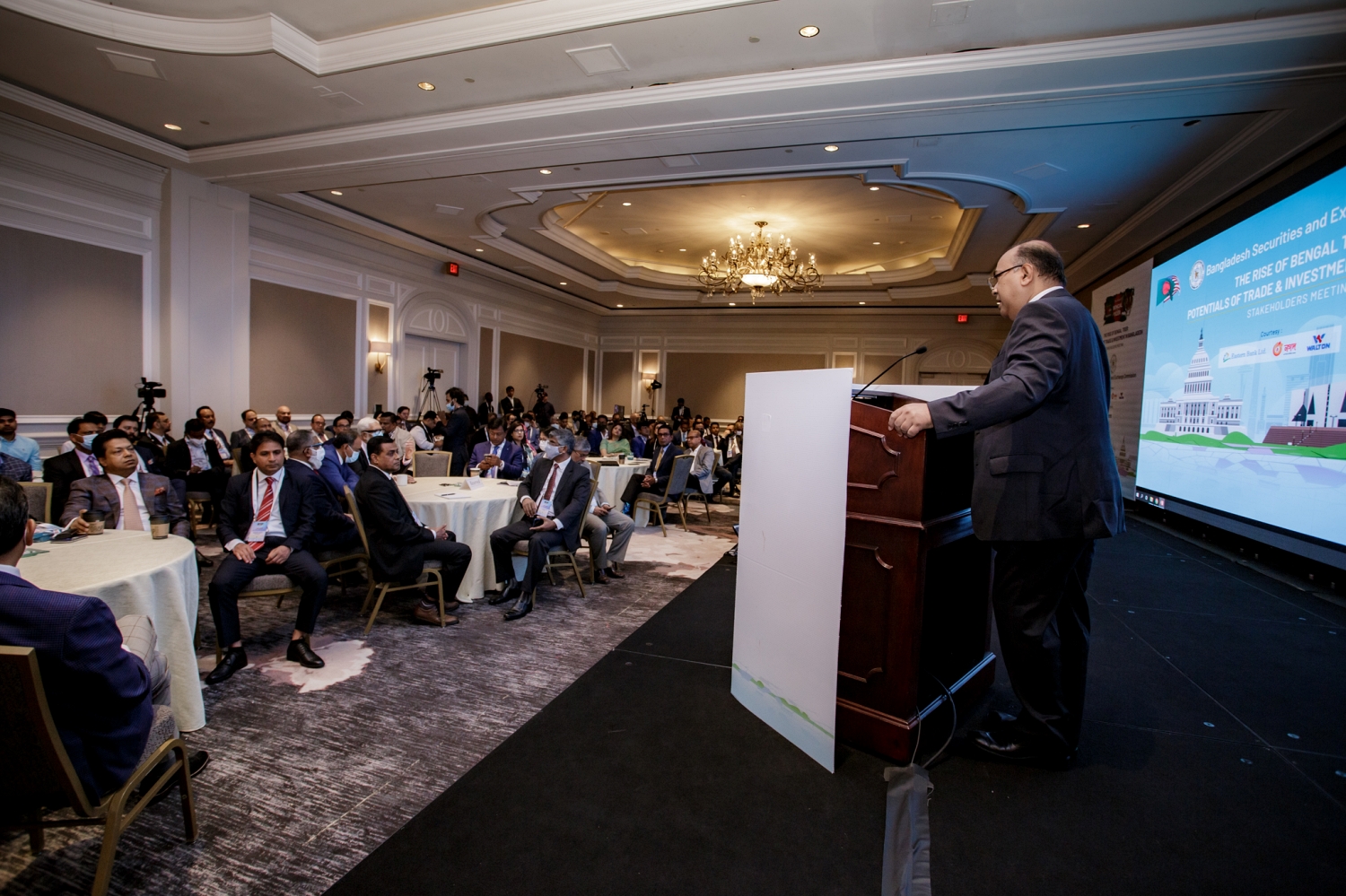
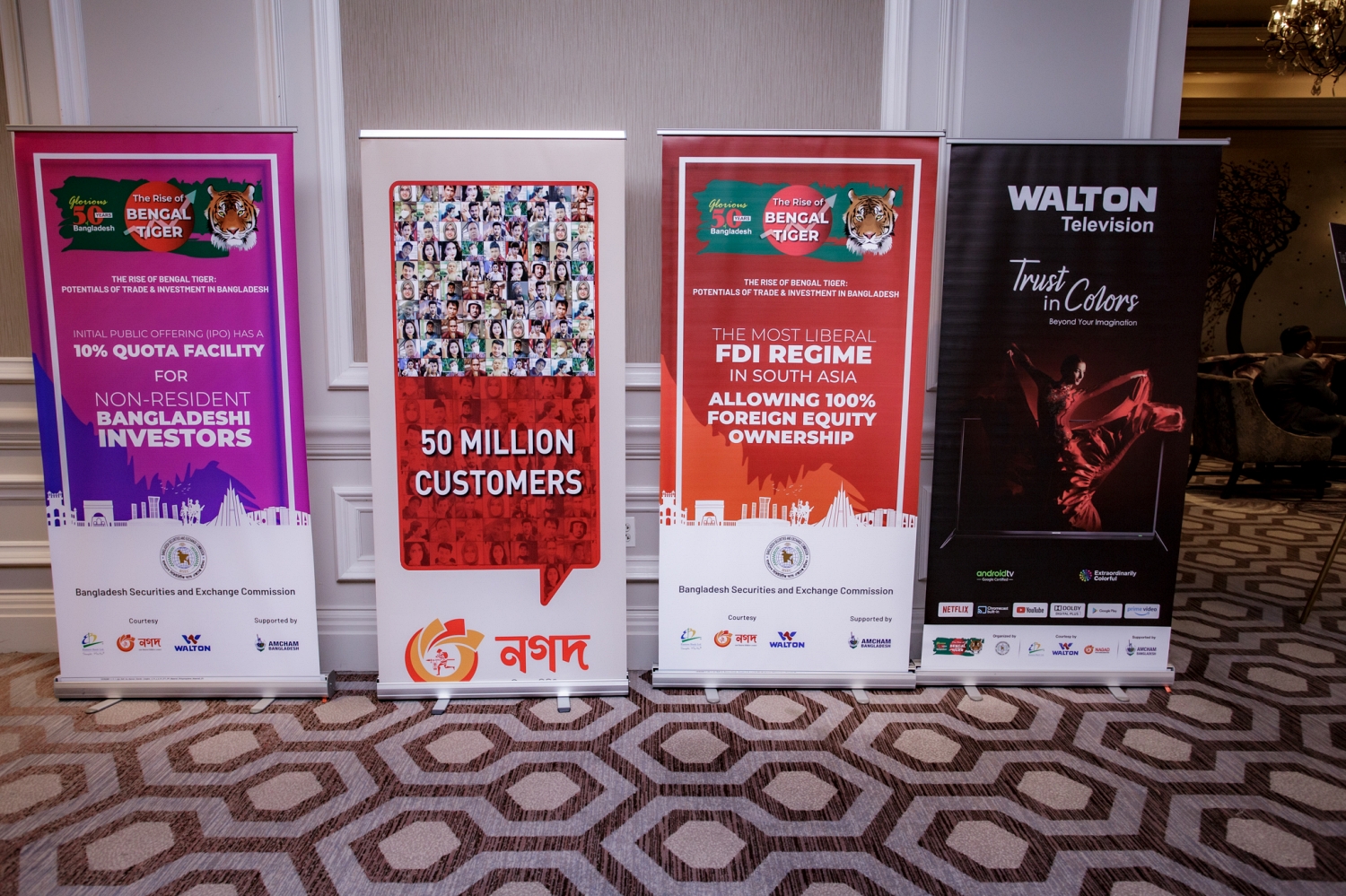
Embracing the Future
The members of the high-powered delegation team members were available to answer all the questions from the attendees at the events who were Foreign Investors, NRBs, business leaders, and media. The panel was very helpful for both the panelists and the participants as many concerning issues were openly discussed and solutions to problems were generated as well. . Many aspects were clarified such as clarification on non-resident Investors Taka Account (NITA) accounts to reduce hassles for NRBs, the opening of digital booths for brokerage houses in different countries, creation of digital outlets with advisory facilities, and starting new products for NRBs.
Bangladesh undoubtedly has come a long way since the country’s independence and has prepared the stage to take off being a nation that has much to offer to the world with determination, proper planning, and setting the right visions at the right time. If the continuum and the spirit to excel prevail, the frontier for future investment and growth will have no limit as Bangladesh opens her doors to a new height of amazing possibilities.


